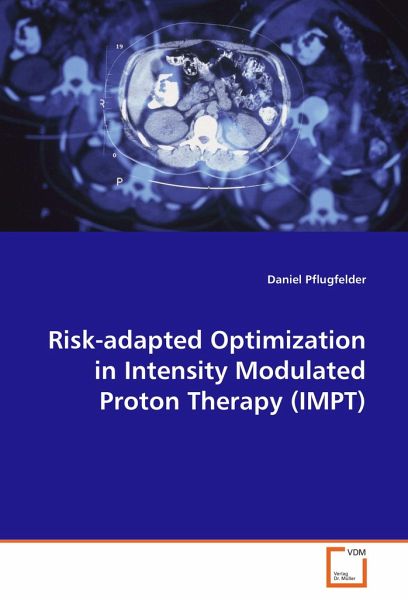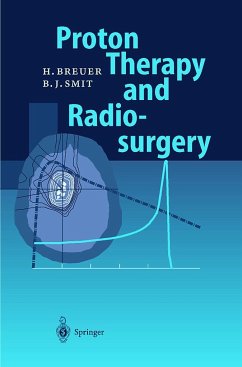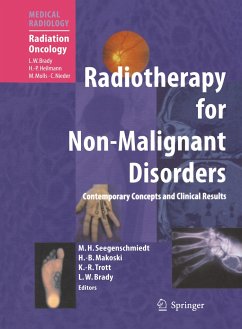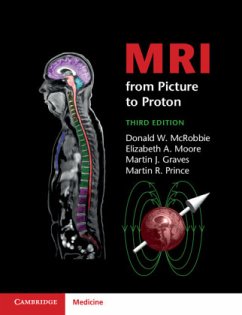
Risk-adapted Optimization in Intensity Modulated Proton Therapy (IMPT)
Versandkostenfrei!
Versandfertig in 6-10 Tagen
32,99 €
inkl. MwSt.

PAYBACK Punkte
16 °P sammeln!
Due to the pronounced dose gradients generated by proton beams, proton treatment plans can be very sensitive to treatment uncertainties. However in IMPT many different solutions of the inverse problem exist which result in dose distributions of comparable quality. This thesis investigates methods to exploit this degeneracy of solutions to generate treatment plans which are robust to uncertainties. To rate the sensitivity to uncertainties of individual beamlet dose distributions the heterogeneity number H was developed. It was shown that H correlates with the dose calculation error introduced b...
Due to the pronounced dose gradients generated by proton beams, proton treatment plans can be very sensitive to treatment uncertainties. However in IMPT many different solutions of the inverse problem exist which result in dose distributions of comparable quality. This thesis investigates methods to exploit this degeneracy of solutions to generate treatment plans which are robust to uncertainties. To rate the sensitivity to uncertainties of individual beamlet dose distributions the heterogeneity number H was developed. It was shown that H correlates with the dose calculation error introduced by the commonly employed pencil beam algorithm as well as with the sensitivity to setup errors of individual beamlets. Finally, the "worst case optimization" was developed to account for uncertainties during the inverse treatment planning. This technique was applied to account for range uncertainties, setup errors and a combination of both uncertainties. The treatment plans generated with this new optimization method are much more robust to the respective uncertainties as conventional IMPT and even as conventional single-field proton treatment plans.














